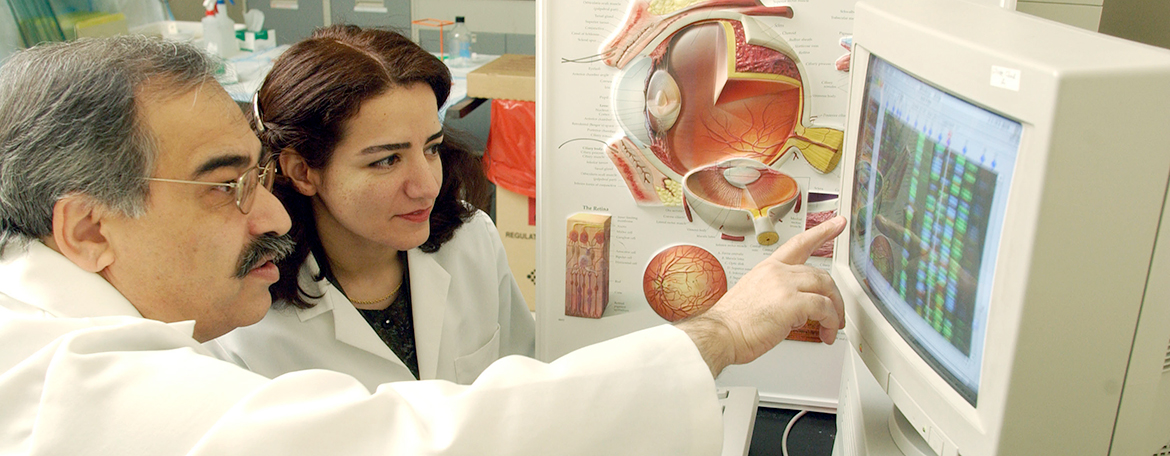
Dr. Mansoor Sarfarazi and the Molecular Ophthalmic Genetics Laboratory is studying the genetics of glaucoma. Specifically, research is being done on adult-onset primary open-angle glaucoma caused by mutations in Optineurin and WDR36 genes.
Primary open-angle glaucoma (POAG) affects 33 million individuals worldwide and is a leading cause of blindness. In a study of 54 families with autosomal dominantly inherited adult-onset POAG, we identified the causative gene on chromosome 10p14 and designated it OPTN or Optineurin (for "Optic Neuropathy Inducing protein"). Sequence alterations in OPTN were found in 16.7% of families with hereditary POAG, including individuals with normal intraocular pressure. The OPTN gene codes for a conserved 66-kilodalton protein of unknown function that has been implicated in the tumor necrosis factor-alpha signaling pathway and that interacts with diverse proteins including Huntingtin, Ras-associated protein RAB8, and transcription factor IIIA. Optineurin is expressed in trabecular meshwork, non-pigmented ciliary epithelium, retina, and brain, and we speculate that it plays a neuroprotective role.
We have also mapped three autosomal recessive loci for Primary Congenital Glaucoma (GLC3A, GLC3B, GLC3C) and further identified the CYP1B1 (Cytochrome P450 1B1) as the causing gene at the GLC3A locus.
Contact
Mansoor Sarfarazi, Ph.D.
Molecular Ophthalmic Genetics Laboratory
UConn Health
263 Farmington Avenue
Farmington, CT 06030-1110
Office: 860-679-3629
Lab: 860-679-3923
Fax: 860-679-7524
Email: mansoor@uchc.edu